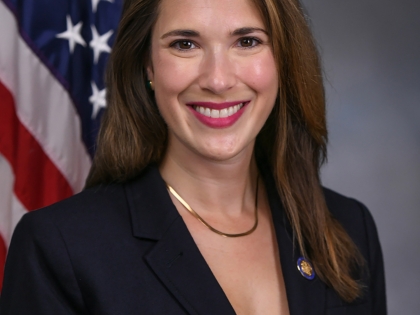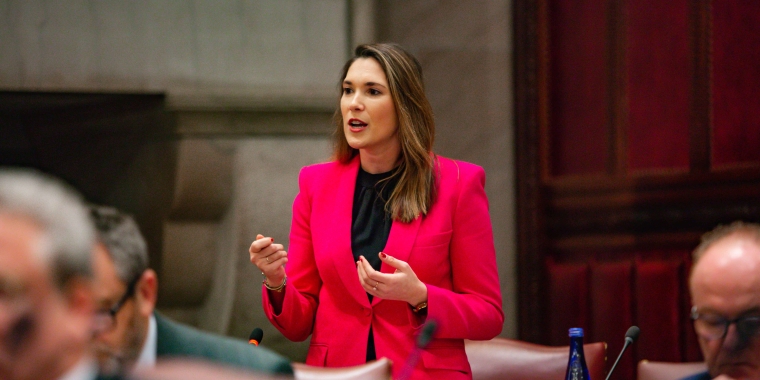
Hinchey’s Healthcare Transparency Act Passes Senate as Part of Reproductive Rights Package Honoring What Would Have Been the 50th Anniversary of Roe v. Wade Decision
January 24, 2023

ALBANY, NY – Senator Michelle Hinchey today announced that her bill to identify healthcare deserts through the Healthcare Transparency Act, passed the State Senate along with a package of legislation to bolster access to reproductive healthcare in the State of New York. S1003A-Hinchey would require the Department of Health (DOH) to publish a list of policy-based exclusions from every general hospital in New York on its website and, likewise, require hospitals, as part of their Patient Rights and Responsibilities Statement, to list policy-based exclusions and include a link to the DOH website.
Policy-based exclusions are healthcare services that hospitals are licensed to deliver but choose not to provide. In recent years, policy-based exclusions have primarily removed reproductive, gender-affirming, and end-of-life care, leaving people in regions across the state without access to these important services.
“We should be celebrating the 50th anniversary of Roe vs. Wade this week, but instead, we are fighting to protect reproductive freedom for people everywhere,” Senator Hinchey said. “New Yorkers deserve to know when their local hospital is removing reproductive care from their community due to policy-based exclusions, and my bill, the Healthcare Transparency Act, will finally shine a light to help us combat this alarming trend. I’m proud to sponsor this legislation and to work alongside my Senate colleagues to ensure that reproductive rights in New York are strengthened, expanded, and equitable no matter what.”
Hinchey’s bill will help the state identify healthcare deserts and the impacts of such access gaps on communities and individuals statewide, which will inform future legislation and funding support targeted to close those disparities. The bill will also give prospective patients the tools to determine whether the healthcare facility in their area provides the care they seek prior to admission, allowing individuals to make informed, life-saving decisions about where to obtain care.
The additional legislation passed by the State Senate today with Senator Hinchey’s support includes:
- Equal Rights Amendment: S108A adds new anti-discrimination protections to the New York State Constitution, including explicit guarantees for reproductive rights and marriage equality. The State Constitution’s Equal Protection Clause already prohibits discrimination because of race, color, creed, and religion. This constitutional amendment adds new protected classes to that list: ethnicity, national origin, age, disability, and sex, which includes sexual orientation, gender identity, gender expression, pregnancy, pregnancy outcomes, and reproductive healthcare and autonomy. The Senate Majority first passed this measure in June 2022 after the U.S. Supreme Court overturned Roe v. Wade. This amendment will now go to voters for ratification in the November 2024 general election.
- Protections for Health Care Providers: S1066 expands upon last year's omnibus actions to provide certain legal protections for reproductive health service providers who offer legally protected health activities, including protection from extradition, arrest, and legal proceedings in other states relating to such services.
- Facilitates Access to Birth Control: S1043 authorizes pharmacists to dispense hormonal contraception from a non-patient specific order written by a licensed physician or certified nurse practitioner, allowing people to bypass the challenges of obtaining medical appointments at offices with limited hours or inconvenient locations.
- Establishes the Reproductive Freedom and Equity Program: S348 establishes a grant program within the Department of Health to build reproductive healthcare provider capacity within the state, fund uncompensated care, and provide financial support to organizations providing support to individuals within and traveling to the State.
###
related legislation
Share this Article or Press Release
Newsroom
Go to Newsroom


